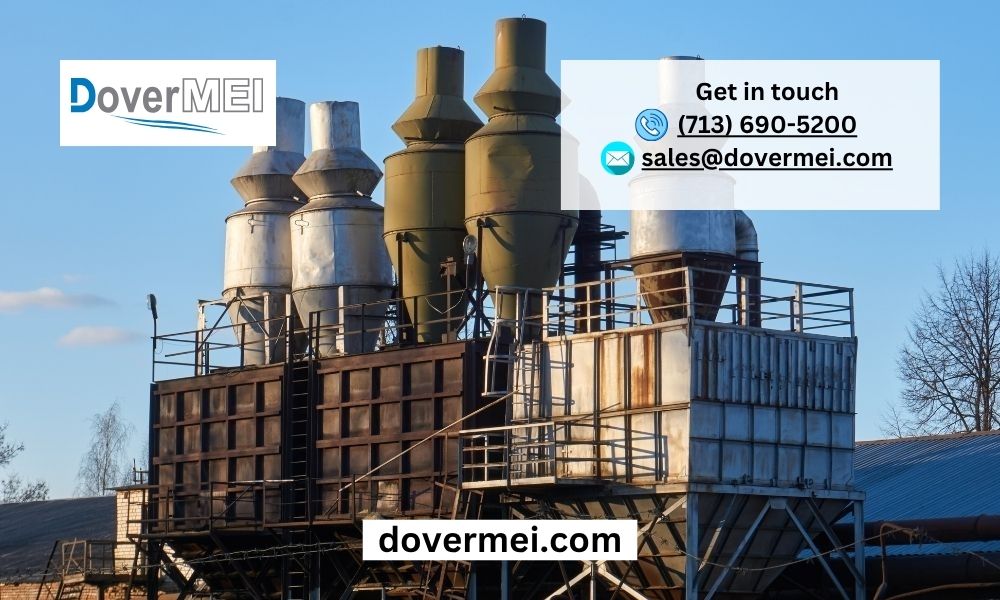Understanding the Importance of Energy-Efficient Dust Collection Systems
In industrial environments, dust collection systems are critical for maintaining air quality, ensuring employee safety, and complying with environmental regulations. However, traditional dust collectors are often major energy consumers, leading to inflated utility costs. Energy-efficient dust collectors are engineered to minimize power consumption, reduce waste, and streamline facility operations, which directly translates to lower operational expenses.
Key Technologies That Drive Energy Efficiency in Dust Collection
Variable Frequency Drives (VFDs)
A primary innovation in energy-efficient dust collection is the integration of Variable Frequency Drives. VFDs allow motors to operate at optimal speeds by adjusting airflow in real-time based on demand. Instead of running at full power constantly, systems with VFDs modulate energy consumption, often reducing energy use by up to 30-50%.
Benefits of VFDs:
- Reduced electrical costs
- Lower motor wear and maintenance
- Extended equipment lifespan
High-Efficiency Motors
Premium efficiency motors certified by NEMA or IE standards significantly outperform standard models. These motors are designed to convert more electricity into mechanical energy with less heat loss. When paired with advanced filtration and airflow control mechanisms, high-efficiency motors provide powerful suction with minimal energy waste.
Key Features:
- Lower heat generation
- Greater torque per watt
- Reduced operational noise
Smart Controls and Automation
Modern dust collectors incorporate intelligent control panels that monitor performance metrics such as pressure differentials, airflow volume, and filter conditions. With programmable logic controllers (PLCs) and IoT sensors, facilities can automate operations, schedule maintenance, and optimize system performance in real-time—all contributing to reduced energy consumption.
Efficient Filtration Technologies
High-performance filters such as nano-fiber cartridges or pleated filters have a larger surface area and lower resistance to airflow. These filters enable efficient dust capture with lower fan speeds, cutting down on power demand. Moreover, advanced filters have longer lifespans, reducing replacement frequency and waste disposal costs.
Design Strategies That Lower Energy Use in Dust Collection
Properly Sized Systems
Oversized dust collectors consume excessive energy, while undersized units fail to provide adequate suction. Custom-engineering your system to match the facility’s volume, type of dust, and equipment layout is vital. Right-sizing ensures optimal airflow management, reducing unnecessary power draw and avoiding costly overcompensation.
Zoned Dust Collection
Implementing zoned dust collection systems allows operators to activate dust collection only in areas currently in use. This localized strategy is especially effective in large facilities where full-capacity operation isn’t always required. Zoning can slash energy consumption significantly while still ensuring worker safety and regulatory compliance.
Minimizing Ductwork Resistance
Energy efficiency is not only about machinery; airflow dynamics within ductwork play a significant role. Properly designed duct systems with minimal bends, smooth interiors, and adequate diameter reduce static pressure. Lower pressure loss means fans use less energy to move air, maintaining efficiency without sacrificing performance.
Maintenance Practices to Sustain Efficiency
Regular Filter Cleaning and Replacement
Clogged or saturated filters force fans and motors to work harder, increasing power usage. Establishing a proactive filter maintenance schedule ensures consistent airflow, reduces energy waste, and extends system life.
Leak Detection and Seal Integrity
Air leaks in ductwork and collector housings undermine system efficiency. Conducting routine inspections and sealing leaks promptly ensures that every kilowatt of power goes directly toward capturing and containing dust, not escaping through inefficient gaps.
Monitoring System Performance
Installing pressure gauges, amperage meters, and airflow monitors helps facility managers identify underperformance or inefficiencies early. Real-time monitoring supports informed decision-making and allows for immediate corrective actions, minimizing unnecessary energy expenses.
Cost Savings From Energy-Efficient Dust Collectors
Lower Utility Bills
One of the most direct advantages of upgrading to an energy-efficient dust collector is the significant reduction in electricity consumption. Facilities typically report 15-50% reductions in energy costs depending on the technology adopted and system optimization level.
Reduced Downtime and Maintenance
Energy-efficient systems with smarter diagnostics experience fewer breakdowns, require less frequent servicing, and minimize labor costs. These efficiencies contribute to lower total cost of ownership (TCO) and improved return on investment (ROI).
Extended Equipment Lifespan
By reducing wear and tear through smart technology and controlled operation, energy-efficient collectors last longer and maintain consistent performance over time, delaying costly capital equipment replacements.
Industries Benefiting from Energy-Efficient Dust Collection
Woodworking and Carpentry
These facilities generate high volumes of airborne sawdust, requiring continuous dust extraction. Energy-efficient systems keep air clean while containing costs.
Metalworking and Foundries
Weld fumes, grinding particles, and metal shavings necessitate robust dust control. Smart collectors provide targeted, energy-conscious solutions.
Food Processing
In environments requiring stringent cleanliness, efficient dust collection ensures compliance with FDA regulations while maintaining operational budgets.
Pharmaceuticals and Chemical Plants
These sectors need precision dust collection with high energy awareness due to the sensitive nature of products and high processing demands.
DoverMEI: Your Partner in Energy-Efficient Dust Collection Solutions
At DoverMEI, we understand that operating costs can make or break industrial productivity. That’s why we specialize in tailor-made, energy-efficient dust collection systems designed to help you reduce power consumption and maximize ROI. Our advanced technologies, engineering expertise, and commitment to innovation ensure your facility meets safety standards without overspending on utilities.

Visit DoverMEI to learn more →
